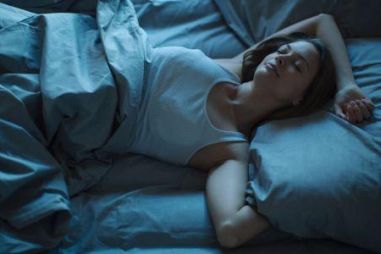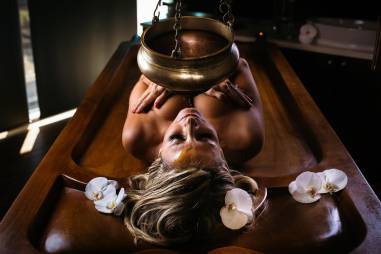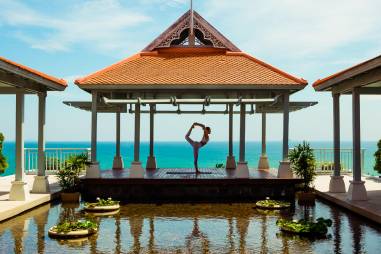Karina Stewart of Kamalaya Wellness Sanctuary on Women’s Health
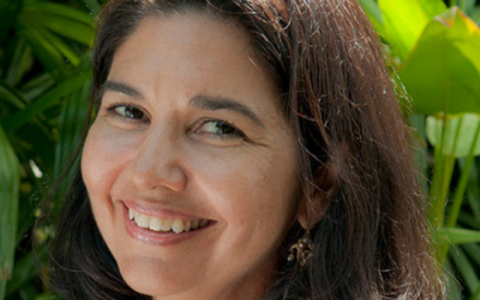
Karina Stewart
Last Saturday, Karina Stewart, co-founder of Thailand’s Kamalaya, held an inspirational workshop at the Amsterdam Rosarium. Around forty women (and one man, described by Karina as “very brave!”) listened attentively to Karina’s vision.
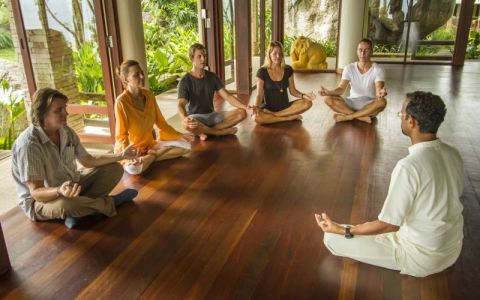
Always online
Karina explained how she approached women’s health from a traditional Chinese medicine (TCM) perspective. “Purely because that’s where my background and expertise lie. My message here is: if women don’t respect their health, the consequences will be huge. Nowadays, multi-tasking is the norm. And we’re all online all the time. Your boss furnishes you with the tools and technology, and in return expects you to be reachable at all times – often even at weekends and during holidays. In many cases, we women also have a dual responsibility. It is in our nature to take on the role of the carer; a role we perform alongside our job roles. In principle, that’s not a bad thing, and of course it’s fantastic that we live in an era in which women have choices. I just feel it would be even more wonderful if we were able to do it all on our own terms. Ideally, there is a balance to be struck between ‘doing’ and ‘being’. And this is even more important for women going through the menopause. Just as when we become adolescents or mothers, there’s lots and lots changing for us. You shouldn’t underestimate the impact of it all! Sleep issues, memory loss, hot flashes, low energy and mood swings are all effects.”
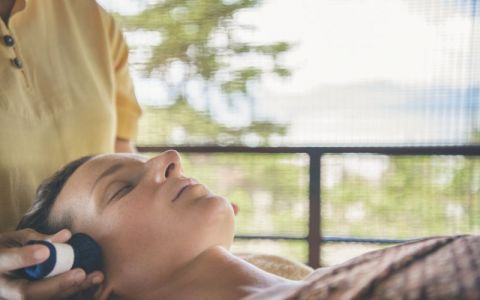
Men versus women
Karina explained how she approached women’s health from a traditional Chinese medicine (TCM) perspective. “Purely because that’s where my background and expertise lie. My message here is: if women don’t respect their health, the consequences will be huge. Nowadays, multi-tasking is the norm. And we’re all online all the time. Your boss furnishes you with the tools and technology, and in return expects you to be reachable at all times – often even at weekends and during holidays. In many cases, we women also have a dual responsibility. It is in our nature to take on the role of the carer; a role we perform alongside our job roles. In principle, that’s not a bad thing, and of course it’s fantastic that we live in an era in which women have choices. I just feel it would be even more wonderful if we were able to do it all on our own terms. Ideally, there is a balance to be struck between ‘doing’ and ‘being’. And this is even more important for women going through the menopause. Just as when we become adolescents or mothers, there’s lots and lots changing for us. You shouldn’t underestimate the impact of it all! Sleep issues, memory loss, hot flashes, low energy and mood swings are all effects.”
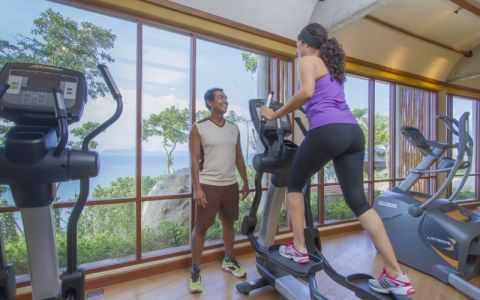
5 key pointers for women’s health
1. Get 30 mins of movement daily.
“Do something you enjoy doing, otherwise you won’t keep it up. Go for a walk with a friend, do weight training, go cycling, swimming. It doesn’t matter what – just move. I would add to this, for women over 35, I strongly recommend yoga; yin yoga in particular. Yoga that is focused on restoration and the breath.”
2. Maintain your ideal weight (i.e. pay attention to your diet).
“Being overweight or underweight will lead to all kinds of health problems. It goes without saying that a healthy diet is key here.” Karina recommends eating plant-based and organic foods. “I’m not going to tell you to stop eating meat. But try not to eat too much of it. Reduce your intake, and if you do eat meat, choose organic. The last thing you want is to be eating meat that’s been pumped with hormones.”
3. Get enough sleep.
“Sleep is number 3 in this list. But it’s really the most important factor in supporting longevity and health. And lots of people aren’t getting enough if it. You really do need those 8 hours. Lots of people think they can function just fine on six hours’ sleep a night, but research has shown that alertness does drop, even if people don’t notice it themselves.
Sleep allows your body to rest and recover. So it’s essential. Women going through the menopause in particular can sleep ‘differently’. There’s a lot you can achieve through a healthier lifestyle that will enhance the quality of your sleep. Chinese herbalists can offer help if you’re suffering in this department – I highly recommend using one.
Getting older is harder for women than it is for men. Men’s hormone levels change very gradually. For us women, it’s as if we’ve jumped off a cliff – boom!
4. Breathe.
Take time out each day to breathe in and out deeply a few times. “By taking ten consecutive deep breaths in and out, you lower your cortisol (stress hormone) levels by thirty per cent!!”
5. Do nothing.
Regularly take time to do nothing. Karina: “One of my teachers once said, that it was a good thing to do nothing for five minutes, five times a day. That’s just 25 minutes in a day, but it will make a world of difference to you. For instance, if you’re on the train, tram or bus, leave your phone and our computer alone – just do nothing. You don’t have to fill your time all the time. Leave it empty.”

 NL
NL BE
BE
